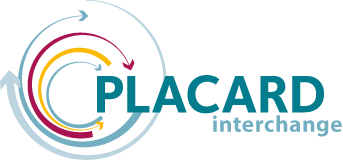The 2017 Climate Change Conference (also known as COP23) is now coming to an end, after two intense weeks of negotiations taking place in Bonn (6-17 November). For the first time in history, the Conference has been led by a small island developing state and one of the most vulnerable places on earth: Fiji. Local communities there have already started to relocate because of sea level rise, and extreme events constantly threaten the islands’ population and economy. Only last year, Fiji was struck by Winston, a devastating cyclone that wiped away one third of the country’s GDP while taking the lives of 44 people.
It is thus no surprise that building the resilience of most vulnerable societies has been elevated as one of the top priorities of this round of negotiations. Fiji’s vision for COP23, put forward last May, strongly focused on the need to support adaptation to extreme and slow onset events; raise adaptation finance; enable access to climate risk and disaster insurance; and promote sustainable agriculture. These calls have been given centre stage during the second week of negotiations through the convening of a COP Presidency Event on Resilience and the Frontiers of Risk Sharing (14 November).
The event launched the InsuResilience Global Partnership for Climate and Disaster Risk Finance and Insurance Solutions, aiming to provide vulnerable countries with financial protection to manage climate risks. It builds on the InsuResilience initiatives initiated by G7 countries in 2015 to give access to insurance coverage for up to 400 million people in developing countries by 2020. The Partnership now brings together the G20 and the V20 countries (an alliance of the 49 most vulnerable nations) and potentially more funds. For instance, Germany pledged 125 million USD to support the initiative, adding to the 30 million GBP already committed by the UK. The Global Partnerships will support data and risk analysis; technical assistance and capacity development; and the design and implementation of smart risk finance and insurance solutions that respond to countries’ specific needs.
The launch of the initiative came on the same day an important step towards the operationalisation of the Paris Agreement (PA) was taken. The UNFCCC Secretariat inaugurated the Clearing House for Risk Transfer, mandated by Decision 1/CP.21 accompanying the PA, as a repository for information on insurance and risk transfer to support vulnerable countries in implementing comprehensive risk management strategies. The platform was established by the Executive Committee of the Warsaw International Mechanism on Loss and Damage, the main vehicle under the Convention for addressing those impacts materialising in particularly vulnerable developing countries when both mitigation and adaptation efforts fall short. Developed in partnership with InsuResilience and Starmind, the Clearing House employs artificial intelligence to connect countries looking for affordable and innovative insurance solutions with entities that can provide it.

